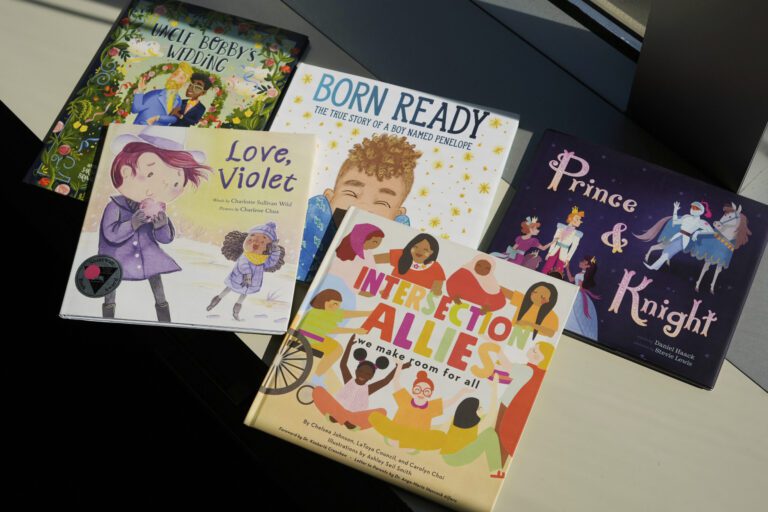U.S. Supreme Court Rules in Favor of Parents on LGBT Curriculum Opt-Out
The U.S. Supreme Court recently delivered a significant victory for a coalition of religious parents, allowing them to opt their children out of LGBT-themed storybook lessons in elementary schools. This landmark ruling, issued in a 6-3 decision, addresses important issues regarding parental rights and the freedom of religious expression within public education.
Key Details of the Ruling
On a pivotal Friday, the Supreme Court granted a preliminary injunction against Montgomery County Public Schools in Maryland. The court determined that the absence of an opt-out option for parents violates the First Amendment, specifically regarding free exercise of religion.
- Immediate Impact: The court’s ruling requires the school board to provide an opt-out option to parents while the case is sent back to a lower court to assess further implications, including whether the board must inform parents of this choice.
Justice Samuel Alito’s Majority Opinion
The majority opinion, penned by Justice Samuel Alito, underlined the following points:
- Constitutional Rights: The introduction of “LGBTQ+-inclusive” storybooks without an opt-out option infringes on the rights of parents to raise their children in accordance with their religious beliefs.
- Diverse Perspectives: While acknowledging that some Americans celebrate the lifestyles depicted in these books, the ruling emphasized the right of other parents to convey different moral messages to their children.
“The Board’s introduction…places an unconstitutional burden on the parents’ rights,” stated Justice Alito.
Concerns Raised by the Dissent
Justice Sonia Sotomayor was among the dissenters, expressing concerns that the ruling could lead to:
- Classroom Chaos: The decision could disrupt public education by enabling parents to exempt their children from exposure to various perspectives and realities.
- Exclusion of Diversity: Sotomayor emphasized that the goal of the curriculum is to ensure representation of diverse groups, asserting that allowing opt-outs could foster division rather than inclusion.
“Today’s ruling threatens the very essence of public education,” argued Justice Sotomayor.
Background of the Case
The case, Mahmoud v. Taylor, has its roots in a dispute dating back three years, initiated by a group of religious families—Christian, Jewish, and Muslim—who argued that the school’s pre-K through eighth-grade curriculum violated their religious beliefs.
Curriculum Details
In October 2022, Montgomery County Public Schools approved a new English Language Arts curriculum that included storybooks with LGBT themes, such as:
- "Pride Puppy!" – A celebration of Pride Day.
- "IntersectionAllies: We Make Room for All" – This book discusses non-binary identities and pronouns.
Initial Opt-Out Options: Initially, the school board allowed parents to opt out of related lessons. However, this option was later retracted, citing potential disruptions to classroom environments.
Legal Journey
After the school board removed the opt-out provision, the parents decided to take legal action, claiming the curriculum indoctrinated children into sexual and gender ideologies.
- District Court Decision: A district court initially refused to mandate the reinstatement of the opt-out policy.
- Fourth Circuit Appeal: An appeal to the United States Court of Appeals for the Fourth Circuit was also declined, arguing that the parents failed to demonstrate a significant burden on their rights.
Responses to the Ruling
-
Support from Advocacy Groups: Organizations like the Becket Fund hailed the ruling as a “historic victory” for parental rights.
Eric Baxter, senior counsel for the Becket Fund, stated: “Today, the Court restored common sense and made clear that parents — not government — have the final say in how their children are raised.”
- School District’s Reaction: Officials from Montgomery County expressed disappointment at the ruling, stressing its challenges for public education across the nation.
Implications for Public Education
This ruling sets a precedent that could reshape how public schools address sensitive subjects related to sexuality and gender identity, providing religious parents greater autonomy in their children’s education.
Conclusion
The Supreme Court’s decision encourages ongoing dialogue about the intersection of education, parental rights, and religious freedom. As public schools navigate these complex waters, the balance between inclusivity of diverse perspectives and respect for familial values will remain an evolving challenge.
For more on educational policy and parental rights, check here and explore how these topics continue to influence school curricula across the nation.


